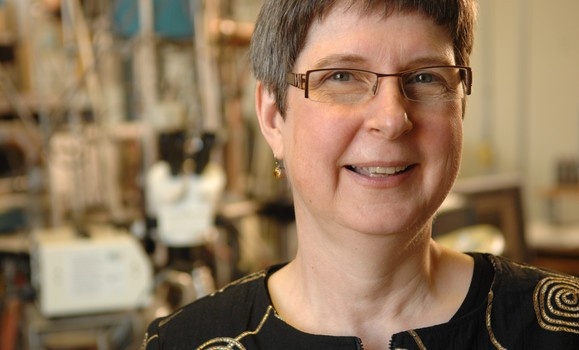Boron may be the fifth element on the periodic table, but if you asked people to list the elements they can name by memory, itās not necessarily one that leaps to top-of-mind.
That might because boron is not found in its pure elemental form on Earth. But itās a main component of compounds such as boron nitride and boron carbide, the second and third hardest materials in the world; only diamond is harder, but the boron compounds can withstand higher temperatures. This makes boron one of the most useful elements, particularly in terms of strength and weight.
Boron compounds can be found in aerospace technology, bulletproof vests and cutting tools. And now, thanks to Dalhousie Chemistry Professor and Royal Society of Canada Fellow Mary Anne White and her colleagues, we know a lot more about the element.
Dr. White led a team of researchers in making some key new discoveries about boron, which were published in the highly regarded German chemistry journal Angewandte Chemie. One is discovering which form of boron is stable at room temperature, something that was not previously known. Additionally, boron stands out among other elements because atoms in its stable form were found to be disorderly. In contrast, the atomic positions in the stable structures of every other element are completely known and ordered in some way.
āNature likes things more orderly,ā explains Dr. White, explaining why discovering boronās innate disorder in that state was so compelling. āIt is especially surprising that the disordered form remains stable at very low temperatures, where matter tends to become more ordered.ā
Dr. White says the research provides an underpinning for a better understanding of many materials.
āWeāre adding to the fundamental knowledge thatās necessary for the advancement of many technologies and industries,ā says White. āAll matter is made of elements and there are only about 90-some naturally occurring elements, with about 30 in high abundance. To find out something new about an important element is amazing.ā
There's nothing boring about boron
Nicole LeBlanc - April 15, 2015

Chemistry Professor Mary Anne White. (Danny Abriel photo)
